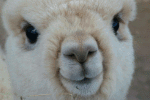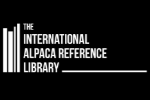Articles by Alpaca World Magazine:
France is revving up!
ENID ANDERSON
My husband and I retired a couple of years ago and did what we had promised ourselves we would do to while away the hours – we moved to Brittany and bought a farm.
My small alpaca herd arrived in April – I’d spent two years researching the animals and their needs and attending husbandry courses and ring-training sessions. I swore I’d never cut the grass again. All set then!
I am now meeting more and more alpaca owners both French and British and it’s great to be able to visit each other, cast an eye over the animals and share information and expertise. The registered French herd is not large yet – in excess of some 400 animals and growing, but there are many more animals either unregistered or registered with BAS. People are getting round to thinking about dual registration now – not least because the French system is revving up!
It doesn’t really make sense for pedigree animals in France to be registered solely in the UK as alpaca farming is becoming a growth industry in France – the Ministries of Agriculture and Rural Development have recognised this and are helping to fund the installation of a mini-mill here. The Mayoress of my commune has expressed her delight in having a new ‘industry’ in what is an agriculturally depressed area of France where many enterprises have closed down or given up as the population heads for the towns. There’s lots of encouragement, curiosity and support here for alpaca owners.
The French have kept alpacas as pets for years. They tended to like the coloureds, and the more speckled or piebald the better. However, in the last year or two they have woken up to the idea of an industry, and now that there are shows – or ‘concourses’ - here, the quest for quality is growing. One of my neighbours in Brittany has already had a consignment of Peruvian animals delivered and a lady I visited recently in Central France bought a good number of animals from the UK after she had been to April’s show in the south of France – to improve her herd. The big breeders in the UK are exporting greater numbers of alpacas every year to France.
In addition, some of these breeders have animals on consignment in France – they are sold here and the sellers will support new owners just as sellers do in Britain. This would have been very useful for an isolated British owner I heard of in southern France who telephoned a colleague of mine for help and advice. One of their alpacas had given birth and the cria had died. A second alpaca had just given birth and they thought it was in danger of dying as well. They asked what my friend thought was wrong. This was the first phone call they had made as they didn’t think the vet knew anything about alpacas and the seller was in the UK. It turned out that they had left the male in the field and he had attacked the crias. Tragic.
It’s very prevalent on both sides of the Channel to hear that owners do not believe their vets know much about camelids. That is probably true in the sense that few have much hands-on experience. My vet, who saw his first alpaca when he visited me, has taken to the task with a will. His experience and enthusiasm in other areas is proving valuable – and he is always willing to take note of any information I have via the internet or the literature concerning the health and wellbeing of the animals. He has, in the course of his research, developed an enzyme that helps to eliminate excessive free radicals and assists in the prevention of stress-related re-absorbtion and rejection of embryo transplants (http://www.promutase.com/home.html). Dr. Desbordes likes to do things organically if possible and has all kinds of good ideas about nutrition. I’m now giving my animals a small amount of lacto-bacillus every day – it aids digestion and helps combat clostridial disease by colonising the gut with ‘good’ bacteria, although it is not a substitute for vaccination. ALF (Association Alpgas et Lamas de France) the BAS equivalent here, are in the process of getting together a register of vets dealing with alpacas so that they can have a forum for discussion and exchange of information. A number of owners here have also acquired copies of Murray Fowler to give to their vets – or at least have them on hand. My vet bought a copy so that his partners would be able to learn about camelids as well!. He obviously sees this as a dynamic growth industry.
I have had some glitches, although luckily I have had a great deal of support from my seller. I have Accoyo and Rural Alianza breeding females which were mated to leading macho males in the UK before I took delivery of them. Unfortunately one of my females aborted, leaving me with a big problem – should I prepare to take two animals (for company) back to the UK and risk a repeat performance of the stress of the isolation and the travelling for both of them – or should I bite the financial bullet and find a male in France? For the welfare of the animal, the solution was obviously to have her mated here, which was what I did. Thankfully there are many top quality stud males in France now from which to choose – both on loan and living here permanently.
In the autumn we had a level one Judging Course delivered in France by Nick Harrington-Smith. It is hoped that this will stimulate the discussion and implementation of a ‘rule-book’ for France, in order to help bring the French industry towards maturity.
Other good things happening here for owners in France include a residential workshop in felting fibre in the spring. ALF is rolling out ‘Networking Days’ for all the breeders of a region to meet and discuss camelid issues. These, combined with the installation of the mini-mill and a whole raft of new shows planned for next year and beyond is making the prospect for alpaca farmers here very exciting.
So, France is definitely committing itself to the idea of an alpaca industry – and increasingly, everything the owner would hope for, from good quality animals, advice, enthusiasm and a welcome, can be found here in France.
Tweet



